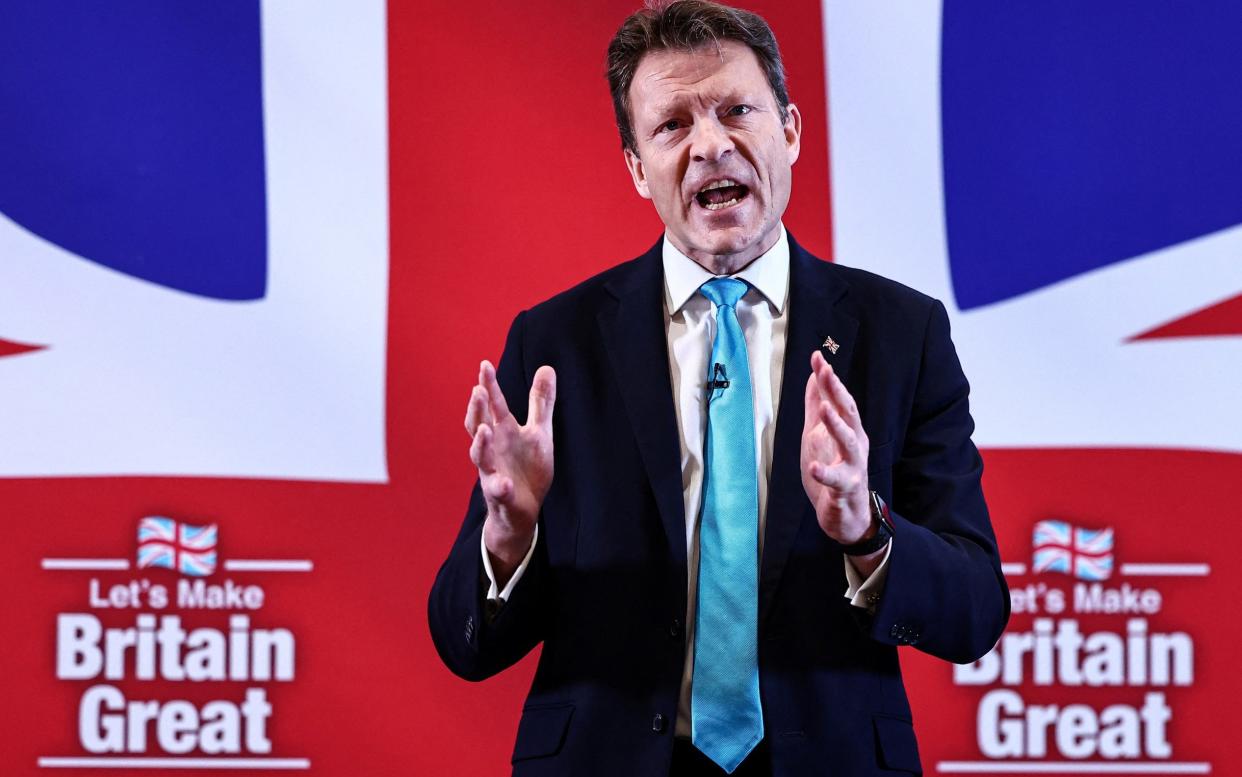BBC apologises for calling Reform ‘far-Right’

The BBC has apologised to Reform UK after calling it “far-Right” in a news report.
The broadcaster made the claim during a report about the Liberal Democrat spring conference in which it referred to Reform surging ahead of Sir Ed Davey’s party in the opinion polls.
Although Reform is to the right of the Conservative Party on issues including legal and illegal immigration and the tax burden, it has previously said its political aims are not motivated by political ideology.
In a statement on Monday, the BBC said: “In an article about the Liberal Democrats’ spring conference, we wrongly described the political party Reform UK as far-Right when referring to polling.
“This sentence was subsequently removed from the article as it fell short of our usual editorial standards. While the original wording was based on news agency copy, we take full responsibility and apologise for the error.”
‘Vested interests’
Richard Tice, the leader of Reform, told The Telegraph that while he was “pleased” the BBC had apologised, the error “shouldn’t have happened in the first place”.
“This is a tactic that certain news organisations are going to try, which is to smear and label not only the party but by direct implication myself and other senior figures,” he said.
He argued that the BBC was “terrified of how successful we are becoming” and accused the broadcaster of acting in its own “vested interests”.
“They should be under no illusion that whilst you can’t libel a political party, there is a direct link to the leader and you can libel me and I won’t tolerate it. Anyone else who wants to try this, good luck and I look forward to seeing you in court.”
In a separate statement, Mr Tice said his lawyers are also in touch “with other organisations who repeated the BBC line”.
He added that he viewed the claim that Reform was a “far-Right” political party as both “defamatory and libellous”.
Reform has promised to ditch the BBC licence fee, which currently stands at £159 per year but will increase by £10.50, a rise of 6.6 per cent, in April.
The pre-election manifesto unveiled by Reform at its spring conference last month reads: “The out-of-touch, wasteful BBC is institutionally biased. The TV licence is taxation without representation. In a world of on-demand TV, people should be free to choose.”
‘Biased’
Mr Tice, a presenter on GB News, has regularly railed against the BBC and claimed it is “biased” against figures on the Right, calling for its flagship political programme Newsnight to be scrapped.
Reform is currently polling as high as 14 per cent in Westminster voting intention surveys ahead of this year’s general election and is often a single-figure margin behind the Conservatives. Around one in four 2019 Tory voters are now planning to back Reform.
The party gained its first ever MP last week after the defection of Lee Anderson, a former deputy chairman of the Conservative Party who lost the whip for claims that Islamists had “got control” of Sadiq Khan, the Labour Mayor of London. Mr Khan has described Mr Anderson’s comments as “wrong” and “heartbreaking”.
It is not the first time that the BBC’s use of “far-Right” has attracted controversy. In December, the corporation was attacked by the Tories for describing a political festival that was hosted by Giorgia Meloni, the Italian prime minister, and attended by Rishi Sunak as a “far-Right rally”.
The event was attended by centrist and centre-Left figures as well as a wide range of Right-wing politicians.
‘Careless categorisation’
A Tory spokesman said the editorial decision raised “serious questions” about the BBC’s policies and accused it of a “careless categorisation”.
YouGov polling from the end of last year showed that the public was split in its perception of the BBC.
13 per cent believed it was generally much more favourable towards Labour and the Left, while the same amount thought it was more generally a little more favourable towards the Tories and the Right.
A further 26 per cent said the BBC was generally neutral, while one-third (32 per cent) did not know.


